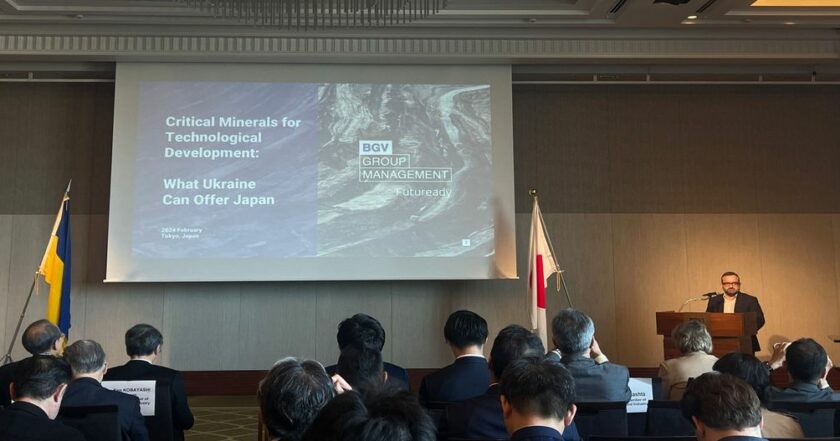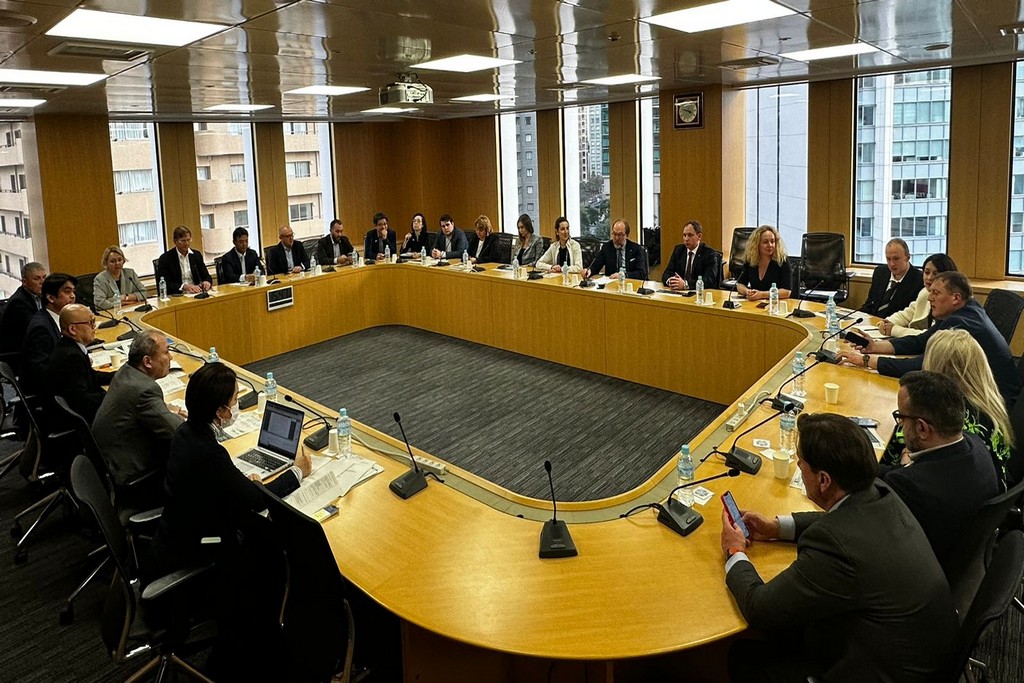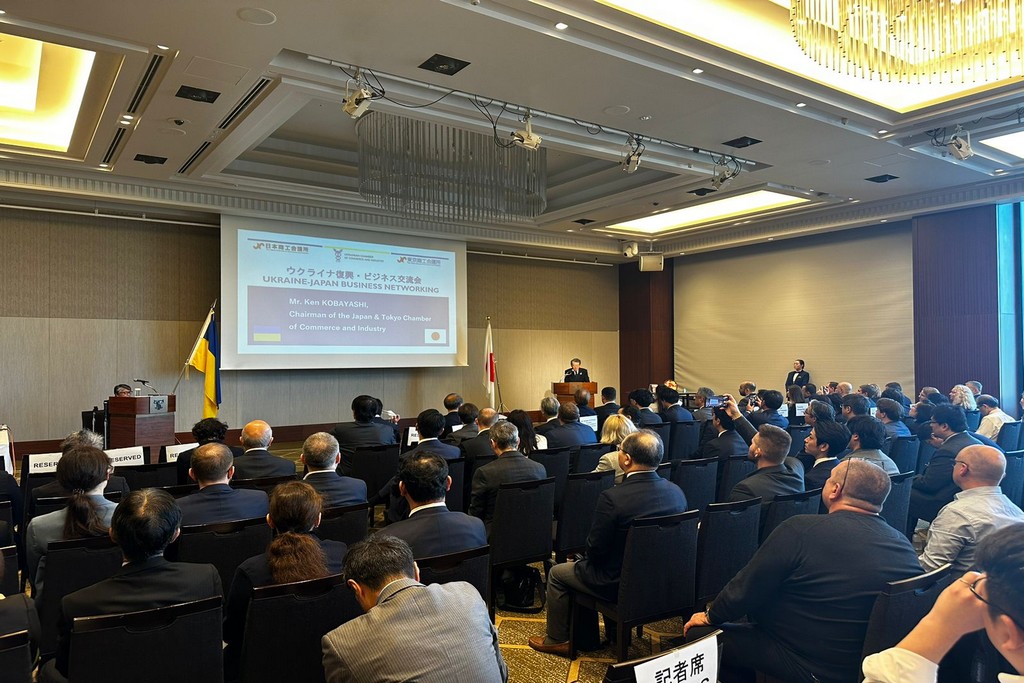BGV Fund Presents Its Mining Projects In Tokyo For Japanese Allies

At the government's invitation, the BGV Group Management team joined an official visit to Japan to attend the Ukraine Recovery Conference in Tokyo. It presented the Group's largest upstream projects to possible Japanese investors.
During a business forum organized by the Japan-Tokyo Chamber of Commerce and Industry and the Ukrainian Chamber of Commerce and Industry, BGV Group Management Board Member Sergii Voitsekhovskyi presented the Group's graphite and beryllium projects. He presented opportunities for cooperation in the field of critical minerals the company can offer for the bilateral development of advanced technologies and products.
The BGV Group Management's presentation focused on graphite and beryllium mining as strategically valuable projects for Ukraine. Sergii Voitsekhovskyi introduced the Japanese partners to the high-tech products the company has been investing in recent years and explained what Ukraine and the BGV fund will offer to international allies in the next few years, namely
- Spherical graphite is an anode material for lithium-ion batteries. The company has already started design work on this project. After the construction is completed and the facilities are launched, the Ukrainian factory will become Europe's largest and will compete with Chinese suppliers, which currently occupy 99% of the spherical graphite market.
- Beryllium oxide and metallic beryllium are materials that have no alternative in the most important strategic industries and high-tech developments in the fields of nuclear and thermonuclear energy, aerospace engineering, telecommunications, computer technology, alloys, and composite materials production for the electrical industry. Sergii Voitsekhovskyi stated that the Perzhanske beryllium ore deposit, owned by BGV Group Management, is the world's largest in terms of the scale and quality of mineralization, which will become a unique product on the global market.
As part of the visit, BGV representatives also took part in some meetings with the largest Japanese business associations and organizations, including agencies providing export credit support and insurance, namely the Japan External Trade Organization (JETRO), the Japan Chamber of Commerce and Industry (JCCI), the NEXI Export Credit Agency, the Japan International Cooperation Agency (JICA), and the Japan Bank for International Cooperation.

After signing a cooperation memorandum, the Tokyo Business Forum was the first joint event organized by the Japan-Tokyo Chamber of Commerce and Industry and the Ukrainian Chamber of Commerce and Industry. Among the 200 participants of the forum were business representatives from the most promising sectors of the Ukrainian economy and Japanese investors, private and state-owned companies, and corporations interested in cooperation.
"I was pleasantly surprised by our delegation's preparation level: projects and specific proposals for investors were presented, particularly in the energy and agro-processing sectors. Though Japan is far away, our trade is growing because we share the same values and belief in democracy and justice. The 56 bilateral agreements signed yesterday open a new page in our cooperation. It is business that has the opportunity to become the foundation that will strengthen Ukrainian-Japanese friendship and partnership through many collaborations in various fields," said Gennadii Chyzhykov, President of the Ukrainian CCI.
Japan is an advanced, high-tech country that is actively investing in the critical materials market. It is home to some of the most powerful companies potentially interested in investing in Ukrainian projects to extract critical minerals, including graphite. The global market for lithium-ion battery anodes is projected to grow from $8.4 billion in 2021 to $21 billion by 2026, representing a CAGR of 19.9% from 2021 to 2026². The demand for lithium-ion batteries drives the industry, as they are considered one of the most efficient and reliable energy storage solutions available today. The growing popularity of electric vehicles and renewable energy systems further drives demand for lithium-ion batteries, creating new opportunities for anode manufacturers.

According to Benchmark Minerals, Japan is the third largest supplier of natural graphite anode on the international market. China's dominant share is 79%, South Korea produces 13%, and the global market receives 8% of anode active material from Japan, with the Japanese raw material base being entirely based on graphite imports to the country.

















































